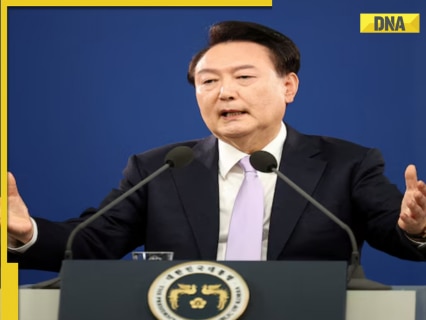South Korea's National Assembly on Saturday voted to impeach President Yoon Suk Yeol, days after his highly contentious declaration of martial law on December 3, sparked protests. The National Assembly impeached the president in the second motion, with 204 members voting in favour. Last Saturday, Yoon narrowly escaped impeachment, thanks to the boycott by most members of his ruling People Power Party.
His controversial marital law, which lasted a mere six hours, led intense protests, with tens of thousands gathering nightly in Seoul, demanding his resignation and arrest. The demonstrations have been largely peaceful, featuring chants, songs, and dances. Yoonl’s martial law aimed to suppress a parliamentary vote on the decree.
This marked the first time martial law had been declared in South Korea in over 40 years. He deployed hundreds of troops and police officers to the National Assembly, but they were withdrawn after lawmakers rejected the decree. Although no major violence occurred, the fallout has been severe, with Yoon's party split and his leadership hanging in the balance.
Opposition parties and legal experts argued that marital law can only be declared during wartime or similar emergencies, and that Yoon overstepped his constitutional powers. In response, Yoon had rejected the rebellion charges, framing his martial law decree as an act of governance aimed at warning the opposition Democratic Party. As a result of impeachment, Yoon has lost his authority but will rem.


















